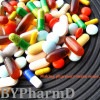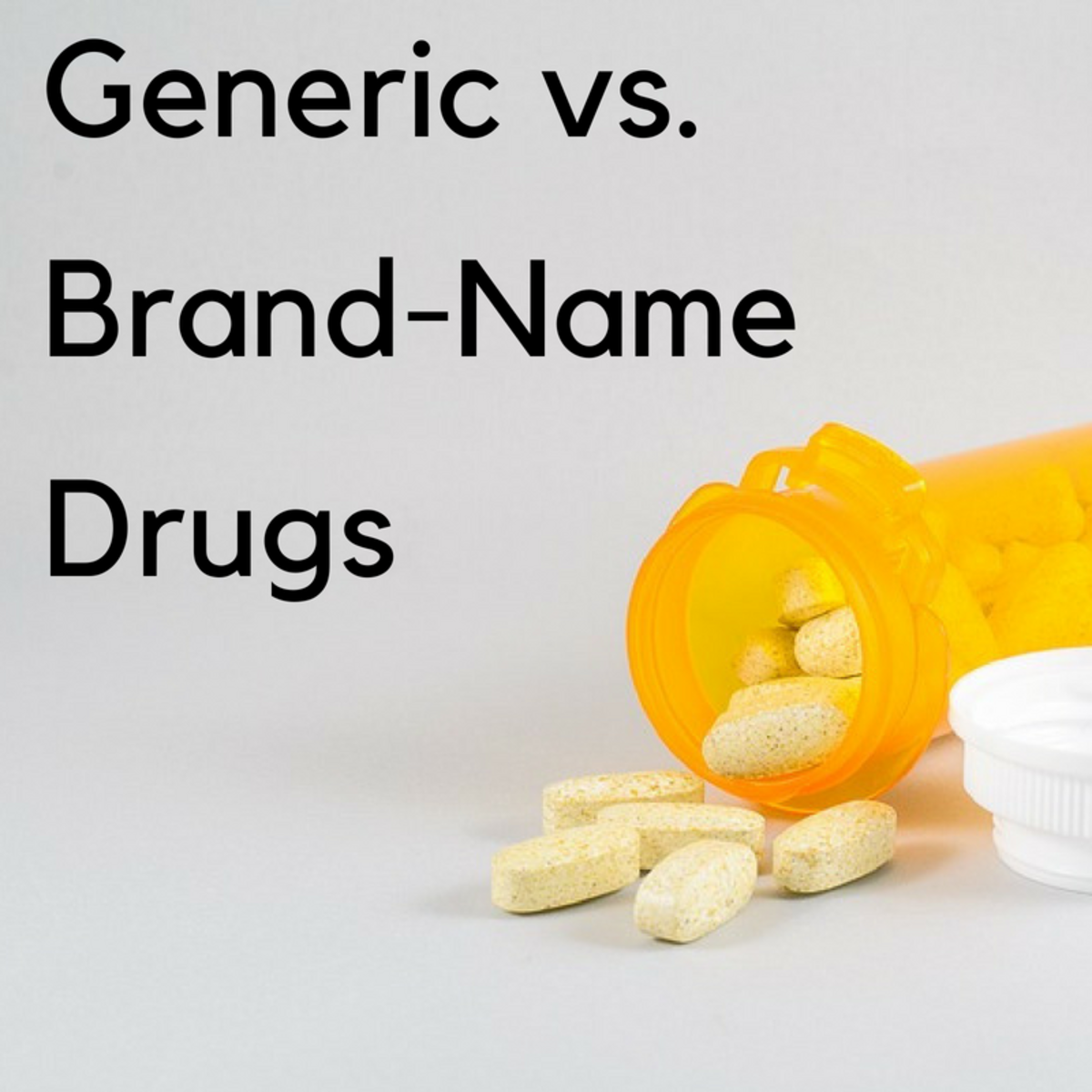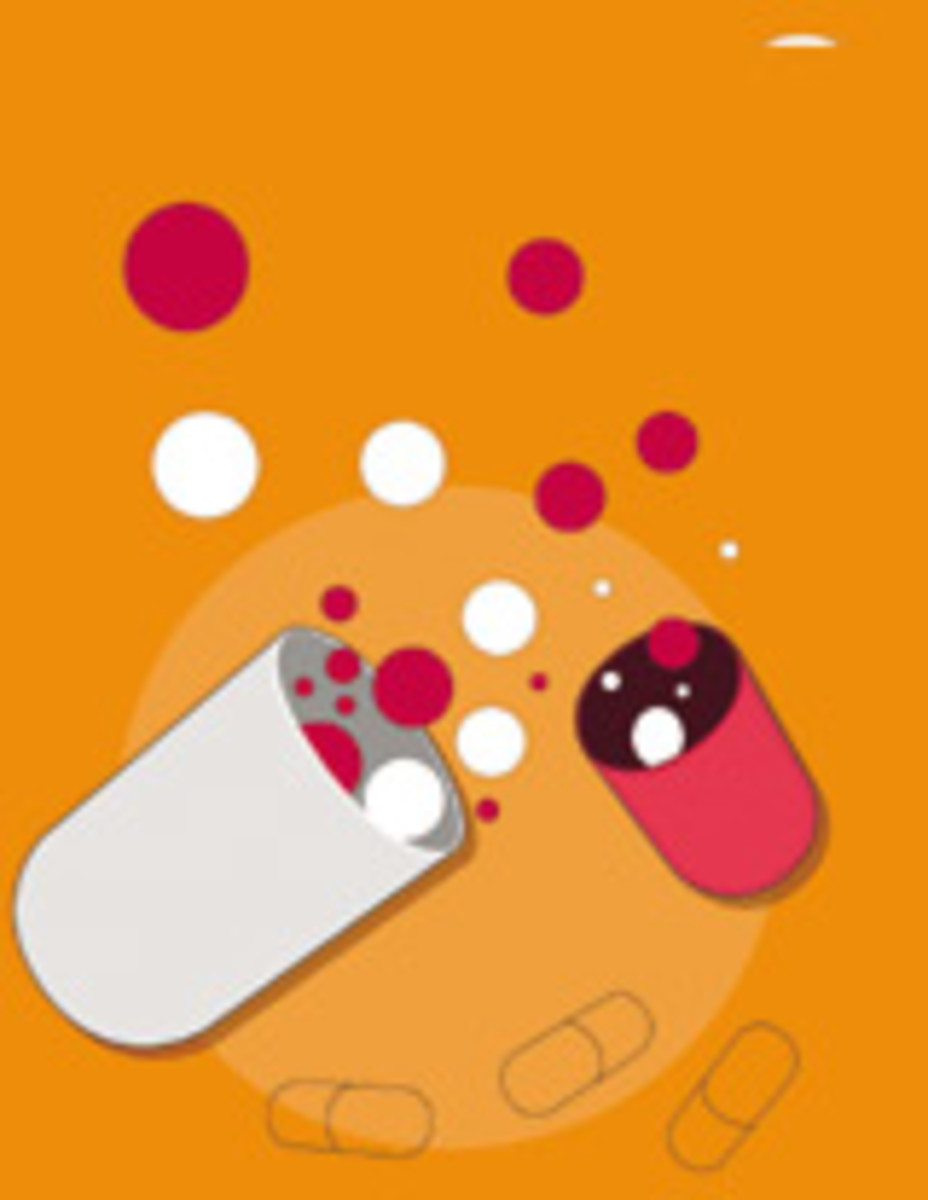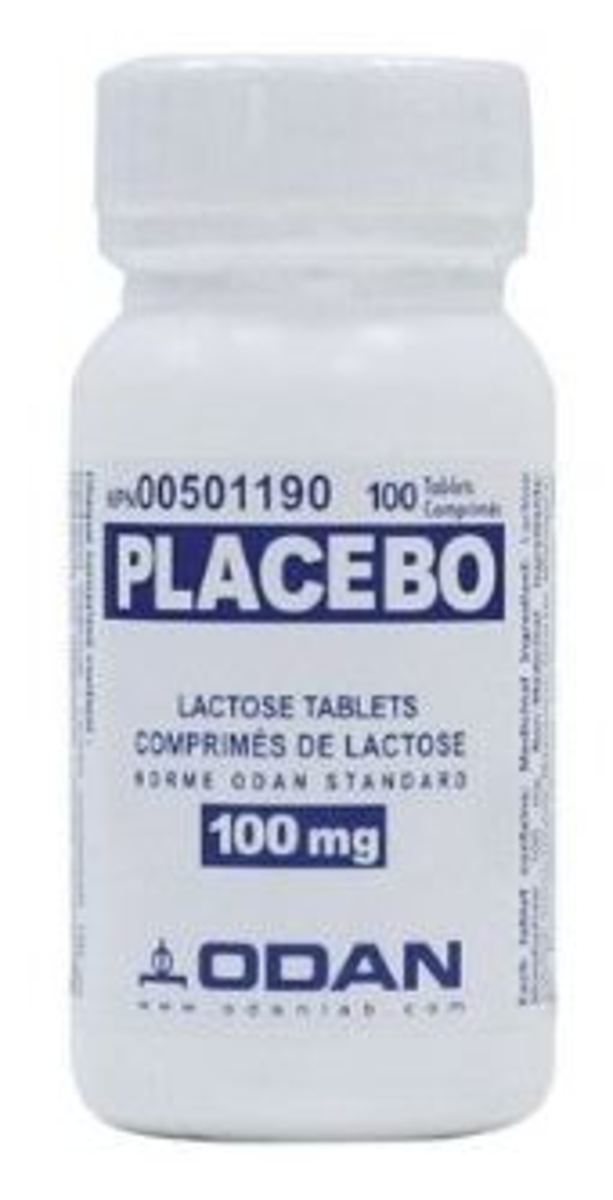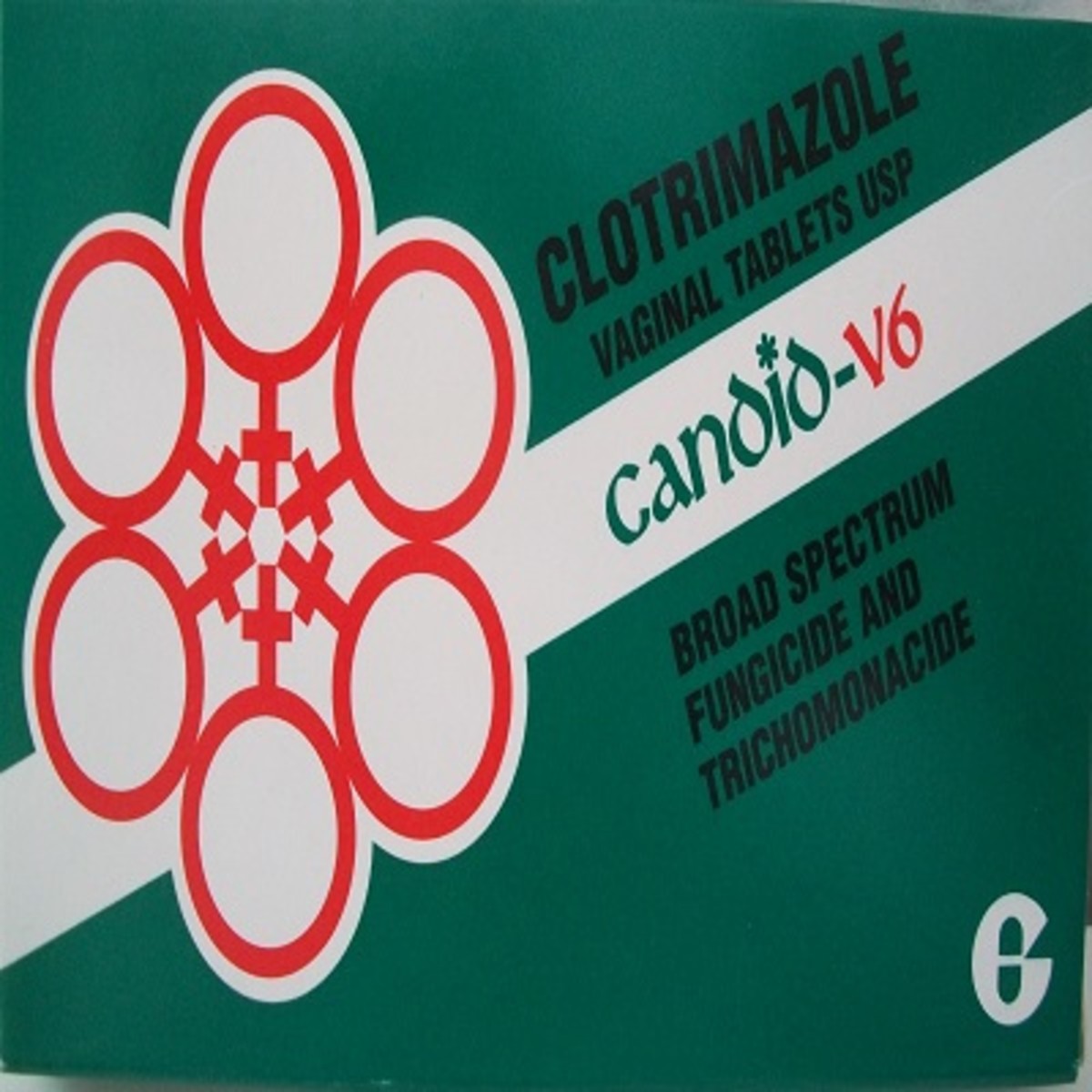Do I need to wean of the medicine I'm taking?
This hub is part of the series "Ask a pharmacist." For more helpful tips about using your pharmacy, visit my central hub.
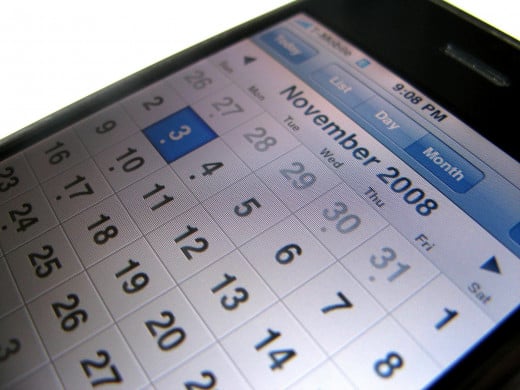

A 68-year-old women calls the pharmacy because she's not going to be able to take her sleeping pill tonight and decides she might want to just not take it at all anymore since she wants to try other things to help her sleep. She asks, "When I stop, can I just stop altogether or should I work myself off of it? What happens if I do it wrong?"


The short answer
Of course, whether you need to wean off any drug depends on which drug it is. It also depends what you're using it for and how long you've been on it. You should always talk to your doctor or pharmacist before stopping any medicine.
A general rule of thumb is to ask yourself two questions. First, "Does this drug treat a disease or condition that could be life threatening?" And second, "Have I ever been told this drug can be addictive?" If the answer to either of those questions is yes, then you should probably wean off it slowing if and when you need to stop it.
A common example is sleeping medicine. Most any sleeping medicine should be weaned off over at least a week. Missing a day here and there isn't usually a problem, but when your done with it you can avoid some annoying withdrawal side effects by taking it slowly.
In the end, it's always in your best interest to talk to your doctor or pharmacist before stopping any medication that was prescribed or recommended.

The long answer
Every drug has an effect on the body (that's why we use them). And the absence of every drug can also have an effect on the body. Whether that absence effect will produce annoying or dangerous withdrawal symptoms depends on a few things. First, it depends on what kind of drug it is and, more specifically, how the drugs works. Second, it depends on how long you've been on the drug and what dose you used, which is to say how used to the drug your body is. Lastly, it might depend on other drugs you are taking. Sometimes people are knowingly given drugs that interact with that interaction being understood and maybe even used to ones advantage. Not taking one of those interacting drugs may cause trouble.
In general, if you want to know if a drug is going to require weaning, ask yourself what the drug does in the body. Specifically, ask yourself if the drug replaces a process that your body would otherwise do (or is supposed to do) naturally. For example, does the drug help you sleep, which is something the body is supposed to do naturally. Similarly, ask yourself if the drug is treating or preventing a very serious condition or illness. Anti-seizure medicine and blood thinners are good examples. If yes, you will want to wean off slowly to see if your body can handle it. In both cases, you are weaning off to give your body a chance to pick up the slack left when the drug is taken away. Stop too fast, and your body may not be able to compensate.
The other consideration is how long you've been on the medicine and how high of a dose you used. A short trial therapy with an antidepressant (say, 1 month) isn't usually long enough to require a taper, but 1 year (or longer) certainly is. The longer you take a drug, the more your body relies on it. This isn't a bad thing, in fact it's often what the goal of treatment is. But when you're done with that treatment you can't just expect your body to all of a sudden get back to doing business as usual. It's been working with the drug for so long, it may need some time to remember how to function without it.
Drugs to go off slowly
Drug
| Why wean?
| What happens if I don't?
|
|---|---|---|
Sleeping medicine
| Your body's sleep routine may depend on the drug.
| Insomnia, restlessness, and anxiety.
|
Anxiety medicine
| These drugs work on your nerves. Without them, your nerves become hyper-reactive.
| Anxiety, irritability. In severe cases hallucinations and tremors.
|
Antidepressants
| These take the place of key brain chemicals. Your body needs to make more to compensate.
| Anxiety, nausea, mood swings, irritability, extreme tiredness
|
Anti-seizure
| These drugs work on your nerves. Without them, your nerves become hyper-reactive.
| Seizure recurrence, or new seizures (Even if you didn't have seizures in the first place).
|
Blood thinners
| Your body needs to make new natural blood thinners to compensate.
| Heart attacks, strokes, or other clots.
|
Steroids
| Taking steroids causes your body to stop making natural steroids.
| Extreme tiredness, weakness, increased likelihood of illness.
|
Pain medicine
| Your body will need to ramp up production of natural pain killers.
| Pain.
|
Remember! Some medicines should never be stopped. Talk to your healthcare professional if you think you need to stop a medicine for any reason.
Also, don't forget that drugs can interact with each other, too. While drug interactions are often considered a bad thing, the truth is that there are a lot of interactions we know about and are fine with. Sometimes, we even count on them to help certain therapies meet goals. Drug interactions can be just as harmful when they no longer exist as when they do. It's important to keep your pharmacist up to date with drugs you no longer take.
Lastly, even if you take a drug to treat something different, but it falls into one of the above categories (or has side effects that do), you may need to wean off. Some drugs have lots of effects on the body, but it's not always clear everything that they do. For example, anti-seizure medicine can be use to treat migraine headaches. Even though you don't use it for seizures, your body doesn't know that and may start to depend on the medicine to keep the seizure/no-seizure equilibrium in balance. If you take the medicine away to quickly, your body may not be able to correct that balance fast enough and you put yourself at risk for seizures. It's always wise to ask your healthcare professional before stopping any medicine.

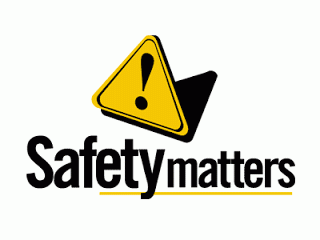
A bit more on the topic
As with anything having to do with medicine, nobody can tell you with 100% certainty that something will or will not happen when you take a drug. Drugs are complicated things, as are people's bodies. The idea with weaning off (or tapering up, for that matter) is to reduce the risk of bad things happening. If the worst that could happen because you go off to quickly is some annoying side effects, it may not be worth your trouble. And if you do just stop, you may not even experience those side effects. On the other hand, if the risk is more serious, or even life threatening, you're going to want to do everything you can to reduce the chances of that happening.
There isn't usually a good reason not to wean off a drug when it can be at all helpful to do so. It's one of those "better safe than sorry" situations that I always encourage people to do. No, not weaning off your sleeping medicine isn't going to kill you. But it may make it harder to fall asleep naturally and you may find yourself going right back on it, or maybe a new one. Give yourself the best chance of success and play it safe.
The final word
Depending on the kind of drug, how long you took it, and what dose you took, it may be very smart, or even required, to wean off when you stop taking it. If you're ever not sure, talk to your doctor or pharmacist. Always play it safe and give yourself the best chance for success.

Was this hub helpful?
If you like this hub, please take a moment to comment, give it a rating, like it on facebook, tweet it, pin it, or follow me.
Your feedback helps me develop new hubs and make them great!
Thank you for reading!
Brandon Y is a community pharmacist working in Minnesota with over 10 years of experience in pharmacy. He welcomes comments and questions. Find more great pharmacy tips here.
Disclaimer
The information provided on this page is intended for general educational and informational use only. It is not specific, personalized healthcare advice for you. For healthcare advice regarding your particular situation, talk to members of your healthcare team. Contact this hubs author for more information.
